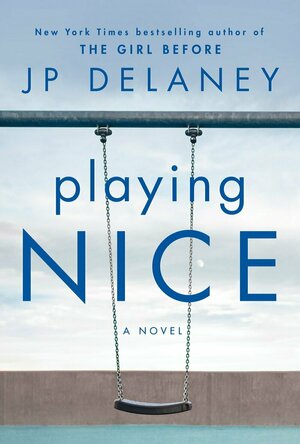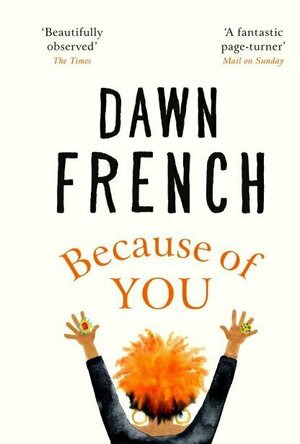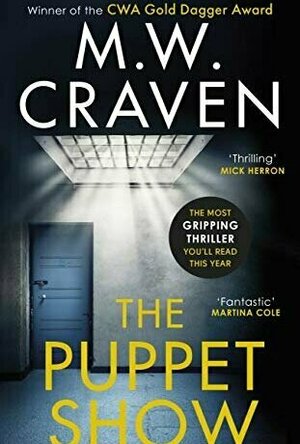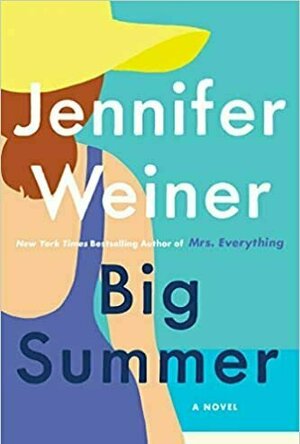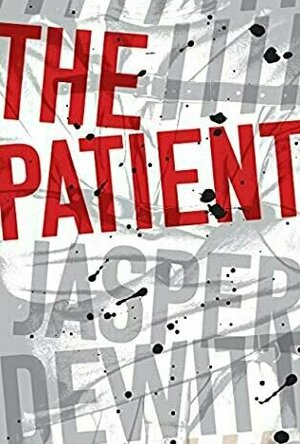Search
Search results
Phillip McSween (751 KP) rated Crank (2006) in Movies
Jun 26, 2020
Quick Pacing, Bad Movie
When a former hitman’s enemies inject him with a lethal poison that will stop his heart if it goes below an active rate, that hitman Chev Chelios is on a race to find the antidote while keeping his heart pumping at the same time.
Acting: 10
I could think of worse actors to play the role of Chev outside of Jason Statham. He seems like he was made for this type of movie. He brings a successful intensity to the role that kicks the movie into a new gear. Unfortunately it wasn’t enough to save the film as a whole. While other performances didn’t necessarily warrant a 10, Chev is pretty much the entire centerpiece so I’m basing the score off Statham’s performance alone.
Beginning: 10
I honestly didn’t hate how the movie began. It actually gets off to a pretty fast start only to let me down later. If only I knew what I was getting myself into.
Characters: 1
Cinematography/Visuals: 7
For what' it’s worth, the film does a good job of making you feel like you are in Chelios’ shoes. The camera relies on close up shots and jarring movement when Chelios has to “charge up”. The action is also captured fairly well, giving you a true sense of being in the moment.
Conflict: 10
Consistent action abounds throughout the movie. In addition to Chelios kicking much ass, there’s also the matter of him trying to keep his heart pumping while he finds the antidote. There is more than enough conflict to drive the story.
Entertainment Value: 6
While there are flashes of greatness in Crank, much of it is hyped up hyperbole so extreme it makes the movie really hard to get into. I lost count of the number of times I rolled my eyes throughout the movie. What did intrigue me throughout was just how much crazier the movie could potentially get.
Memorability: 4
Pace: 10
Plot: 0
What a dumbass story. That is all.
Resolution: 6
I give it props for an inventive ending. However, it wasn’t a successful resolution in my opinion. We followed Chelios on this entire journey for it to come to this? Nah, just…nah.
Overall: 64
You could tell this movie was going to be a mess from the trailer. Surprisingly enough it has a positive rating on Rotten Tomatoes and it seems to have a cult following. I really don’t get it, even as an action lover. It’s a pass for me.
Acting: 10
I could think of worse actors to play the role of Chev outside of Jason Statham. He seems like he was made for this type of movie. He brings a successful intensity to the role that kicks the movie into a new gear. Unfortunately it wasn’t enough to save the film as a whole. While other performances didn’t necessarily warrant a 10, Chev is pretty much the entire centerpiece so I’m basing the score off Statham’s performance alone.
Beginning: 10
I honestly didn’t hate how the movie began. It actually gets off to a pretty fast start only to let me down later. If only I knew what I was getting myself into.
Characters: 1
Cinematography/Visuals: 7
For what' it’s worth, the film does a good job of making you feel like you are in Chelios’ shoes. The camera relies on close up shots and jarring movement when Chelios has to “charge up”. The action is also captured fairly well, giving you a true sense of being in the moment.
Conflict: 10
Consistent action abounds throughout the movie. In addition to Chelios kicking much ass, there’s also the matter of him trying to keep his heart pumping while he finds the antidote. There is more than enough conflict to drive the story.
Entertainment Value: 6
While there are flashes of greatness in Crank, much of it is hyped up hyperbole so extreme it makes the movie really hard to get into. I lost count of the number of times I rolled my eyes throughout the movie. What did intrigue me throughout was just how much crazier the movie could potentially get.
Memorability: 4
Pace: 10
Plot: 0
What a dumbass story. That is all.
Resolution: 6
I give it props for an inventive ending. However, it wasn’t a successful resolution in my opinion. We followed Chelios on this entire journey for it to come to this? Nah, just…nah.
Overall: 64
You could tell this movie was going to be a mess from the trailer. Surprisingly enough it has a positive rating on Rotten Tomatoes and it seems to have a cult following. I really don’t get it, even as an action lover. It’s a pass for me.
BookInspector (124 KP) rated Playing Nice in Books
Nov 9, 2020
The protagonists in this story were Pete and Maddie, and the story is told from their perspectives. Pete is unemployed/freelance journalist, who loves being the main carer of his son – Theo. Pete is very sweet and a true people pleaser. Maddie is working in advertising and has difficulty finding her motherly instinct when it comes to Theo. We also have Miles and Lucy, the real Theo’s parents, that are truly strange. The only character I really liked was Pete, he is just so sweet and innocent man. I did not like Maddie, I think she is an absolute hypocrite. However, I have to admit, her input in this book was intriguing. The author is an absolute expert when it comes to creating psychopaths in his novels. Every single book has one, and they are really well developed and delivered. In this book it was Miles. I really have nothing good to say about him at all, except that he is a master of deceit and nastiness.
The plot of this novel started pretty slow. It was a pity to see Pete struggling so much, but when the cruel twists came through, my blood just boiled for all the injustice happening in this book. It was like an avalanche of bad news hitting Pete and Maddie, and all that made me sad, angry and kind of annoyed. The topics discussed in this book were premature babies, mental health issues, infidelity, controlling and psychopathic partners and their behaviour, the legal system in the UK, family courts, challenging of “stay at home dad” stigma, and many more. I really liked how the author released the important information in this novel, some of it was thrown in like a bomb, but other important details were shared slowly throughout the book.
I really like the writing style, it is very well researched, truly personal and a challenging read. The book is set in London, and I really enjoy learning about different boroughs. The chapters are pretty short, and the book is so riveting and emotionally absorbing, that the pages just flew by to me. I really liked the ending of this book, it is very surprising but extremely satisfying, to say the least. 🙂
So, to conclude, I strongly recommend this novel to everyone who loves a good psychological thriller. I would love to see this book made into a film. The characters are all so different, unique and intriguing, and the plot is exceptionally well crafted, filled with so many emotions, that it is really hard to read this book without feeling something (in my case it was anger and pity).
The plot of this novel started pretty slow. It was a pity to see Pete struggling so much, but when the cruel twists came through, my blood just boiled for all the injustice happening in this book. It was like an avalanche of bad news hitting Pete and Maddie, and all that made me sad, angry and kind of annoyed. The topics discussed in this book were premature babies, mental health issues, infidelity, controlling and psychopathic partners and their behaviour, the legal system in the UK, family courts, challenging of “stay at home dad” stigma, and many more. I really liked how the author released the important information in this novel, some of it was thrown in like a bomb, but other important details were shared slowly throughout the book.
I really like the writing style, it is very well researched, truly personal and a challenging read. The book is set in London, and I really enjoy learning about different boroughs. The chapters are pretty short, and the book is so riveting and emotionally absorbing, that the pages just flew by to me. I really liked the ending of this book, it is very surprising but extremely satisfying, to say the least. 🙂
So, to conclude, I strongly recommend this novel to everyone who loves a good psychological thriller. I would love to see this book made into a film. The characters are all so different, unique and intriguing, and the plot is exceptionally well crafted, filled with so many emotions, that it is really hard to read this book without feeling something (in my case it was anger and pity).
BookInspector (124 KP) rated Because of you in Books
Nov 9, 2020
This novel has multiple protagonists, and I think they all are equally important in this story. The most influential characters would be Julius and Anna, Hope and Minnie. My heart truly fell for Anna, her husband Julius is a self-centred psychopath and she was left on her own to deal with all the events that were happening to her. I simply do not justify Hope’s actions in this book in any way or format. She had no right to behave the way she did, it does not matter how she felt, jut there is no justification to her actions! Minnie is a true personality, as well as a teenager with all her moods and behaviour. I think this novel is very character-driven, allowing the reader to see the events from different perspectives.
The narrative was an absolute emotional roller-coaster for me. I was angry most of the times, because of Hope and Julius, I was sad, pity but proud of Anna and I was kind of excited for Minnie. This novel discusses a lot of important topics such as stillbirth, toxic marriages, teenage pregnancy, motherly love, loss, mental health issues, sacrifice, self esteem, and many many more. The plot is so full of events, that it is quite difficult not to spoil it. 🙂 One thing I understand, that this is Hate it or Love it kind of book, and I can see why it might happen. 🙂
The writing style of this novel is absolutely magnificent! It was my first novel by Dawn French, and I am impressed to the core. Her ability to develop the character is excellent. I have to warn the readers, that this novel is a very emotionally challenging read, it might trigger PTSD to people who had bad luck with pregnancies or any kind of loss of a child (death, kidnappings, murders, anything…), please proceed with caution. The chapters have a decent length, and this book had me gripped from the first chapter. Even though I was angry most of the time throughout this book, the ending left me weeping like a baby. It is beautifully and heartbreakingly concluded.
So, to conclude, the book that brought so much emotion and left me scarred can be nothing but BRILLIANT. The whole story has absorbed me with its injustice, character’s feelings and all the nuances of the plot. If you have a chance to listen to the audiobook, please do, the author is a brilliant storyteller, and her personality shines through in her narration of this novel.
The narrative was an absolute emotional roller-coaster for me. I was angry most of the times, because of Hope and Julius, I was sad, pity but proud of Anna and I was kind of excited for Minnie. This novel discusses a lot of important topics such as stillbirth, toxic marriages, teenage pregnancy, motherly love, loss, mental health issues, sacrifice, self esteem, and many many more. The plot is so full of events, that it is quite difficult not to spoil it. 🙂 One thing I understand, that this is Hate it or Love it kind of book, and I can see why it might happen. 🙂
The writing style of this novel is absolutely magnificent! It was my first novel by Dawn French, and I am impressed to the core. Her ability to develop the character is excellent. I have to warn the readers, that this novel is a very emotionally challenging read, it might trigger PTSD to people who had bad luck with pregnancies or any kind of loss of a child (death, kidnappings, murders, anything…), please proceed with caution. The chapters have a decent length, and this book had me gripped from the first chapter. Even though I was angry most of the time throughout this book, the ending left me weeping like a baby. It is beautifully and heartbreakingly concluded.
So, to conclude, the book that brought so much emotion and left me scarred can be nothing but BRILLIANT. The whole story has absorbed me with its injustice, character’s feelings and all the nuances of the plot. If you have a chance to listen to the audiobook, please do, the author is a brilliant storyteller, and her personality shines through in her narration of this novel.
BookInspector (124 KP) rated The Puppet Show (Washington Poe, #1) in Books
Sep 24, 2020
Tilly and Poe are an absolutely stunning combo. They are total opposites in everything: age, the way they work, IQ levels, but they make such an amazing team together. I really liked Poe and his personality, he has a great analytical mind and strong determination to achieve justice. However, Tilly was my favourite in this book, she is such a unique and original character! She is full of surprises, and her intelligence and naivety are incredibly refreshing. I really liked the way the author portrayed the different relationships between police personnel, all the politics and territorial fights were very amusing to read about, and gave the sense, that the author really knows what he is talking about. His work experience in the police and life in the Lake District was very well utilized in this book.
The narrative was very creatively written. The excitement in this book comes in waves, we have these calm periods, when it seems that not many things happen, and then the author throws in some great twist or turn, and the whole buzz comes back rushing. I really liked the topics which the author discussed in this book, such as workplace bullying, child abuse, politics in the management, etc. The story was told from a single perspective, bringing in a lot of Poe’s personal emotions. Even though it was sufficient to me, I would love to see how Tilly’s brain works and how she is processing different situations.
The setting of the book is constantly changing between different places in Cumbria, and the detailed descriptions made me feel like I am with Poe on this journey. The writing style was very pleasant with short chapters, which really just flew by. I have to add a little warning, this novel does carry some scenes where people might feel disturbed. The ending was very cleverly written, where it rounded the whole story very well, but at the same time, leaving you questioning of what is going to happen next.
To conclude, I think it is a very intriguing and absorbing thriller, filled with very unique but at the same time believable characters, and the plot, that keeps thickening as you go, engrossing you with all the new findings and leads. It was a true page-turner to me and I can not wait for the second book in the series. If you haven’t read it, please do, I think it is worth the time, and I hope you will enjoy it as much as I did.
The narrative was very creatively written. The excitement in this book comes in waves, we have these calm periods, when it seems that not many things happen, and then the author throws in some great twist or turn, and the whole buzz comes back rushing. I really liked the topics which the author discussed in this book, such as workplace bullying, child abuse, politics in the management, etc. The story was told from a single perspective, bringing in a lot of Poe’s personal emotions. Even though it was sufficient to me, I would love to see how Tilly’s brain works and how she is processing different situations.
The setting of the book is constantly changing between different places in Cumbria, and the detailed descriptions made me feel like I am with Poe on this journey. The writing style was very pleasant with short chapters, which really just flew by. I have to add a little warning, this novel does carry some scenes where people might feel disturbed. The ending was very cleverly written, where it rounded the whole story very well, but at the same time, leaving you questioning of what is going to happen next.
To conclude, I think it is a very intriguing and absorbing thriller, filled with very unique but at the same time believable characters, and the plot, that keeps thickening as you go, engrossing you with all the new findings and leads. It was a true page-turner to me and I can not wait for the second book in the series. If you haven’t read it, please do, I think it is worth the time, and I hope you will enjoy it as much as I did.
Kristy H (1252 KP) rated Big Summer in Books
May 7, 2020
Well this was an unexpected yet enjoyable read. It's far less serious than Weiner's previous book, the expansive and beautiful Mrs. Everything, but I think it's exactly the read we need for these times. I finished feeling happy and grateful for what I had in my life. Big Summer was a wonderful distraction from real life.
This is a fun story featuring our engaging plus-size heroine, Daphne, who is still struggling to find herself as an adult. Many of her scars and insecurities come from her so-called friendship with Drue, who was more of a user than a friend. After Drue hurt Daphne one time too many, she hasn't seen her in six years. But she's still powerless to say no to her, especially when she's begging for her to attend her high society wedding.
"You are susceptible to Drue Cavanaugh. She's your Kryptonite."
I found Daphne to be sweet albeit in need of a backbone at times. Her journey to self-actualization is certainly engaging. Big Summer takes a huge turn about halfway through, giving me a big surprise, but I loved it, honestly. I'm glad I hadn't read about the twist--a lot of reviews give it away, but I won't. Let's just say that Drue and her minions can be quite twisted at times, and there's a lot to unravel and unwrap here in terms of motivations and backstory. Big Summer starts with a little snippet set in the early 1990s, setting us up for the story ahead. We also learn about Daphne and Drue's past and all about their friendship.
This is such a sweet, sometimes silly (oh how I love Daphne's parents), and real read. Goodness, the pieces about Daphne's weight can be so heartbreaking. There's a section where she remembers her grandmother caring for her for a summer and basically giving her her weight insecurities, as she put Daphne on her first diet, making her aware of being heavier. Oh man. Weiner is an excellent writer, and she brings Daphne to life here, making her such a true person, whom we want to root for, hug, and love.
And she gives us a book about family, love, and reminds us to be grateful for what we have. The grass isn't always greener on the other side, per se. Always important, but even so more right now. I loved this one, with its escapist nature and twisty yet heartfelt storyline. 4+ stars.
This is a fun story featuring our engaging plus-size heroine, Daphne, who is still struggling to find herself as an adult. Many of her scars and insecurities come from her so-called friendship with Drue, who was more of a user than a friend. After Drue hurt Daphne one time too many, she hasn't seen her in six years. But she's still powerless to say no to her, especially when she's begging for her to attend her high society wedding.
"You are susceptible to Drue Cavanaugh. She's your Kryptonite."
I found Daphne to be sweet albeit in need of a backbone at times. Her journey to self-actualization is certainly engaging. Big Summer takes a huge turn about halfway through, giving me a big surprise, but I loved it, honestly. I'm glad I hadn't read about the twist--a lot of reviews give it away, but I won't. Let's just say that Drue and her minions can be quite twisted at times, and there's a lot to unravel and unwrap here in terms of motivations and backstory. Big Summer starts with a little snippet set in the early 1990s, setting us up for the story ahead. We also learn about Daphne and Drue's past and all about their friendship.
This is such a sweet, sometimes silly (oh how I love Daphne's parents), and real read. Goodness, the pieces about Daphne's weight can be so heartbreaking. There's a section where she remembers her grandmother caring for her for a summer and basically giving her her weight insecurities, as she put Daphne on her first diet, making her aware of being heavier. Oh man. Weiner is an excellent writer, and she brings Daphne to life here, making her such a true person, whom we want to root for, hug, and love.
And she gives us a book about family, love, and reminds us to be grateful for what we have. The grass isn't always greener on the other side, per se. Always important, but even so more right now. I loved this one, with its escapist nature and twisty yet heartfelt storyline. 4+ stars.
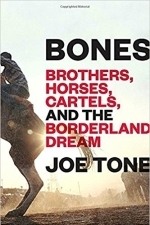
Bones: Brothers, Horses, Cartels, and the Borderland Dream
Book
The dramatic true story of two brothers living parallel lives on either side of the U.S.-Mexico...
Politics social issues
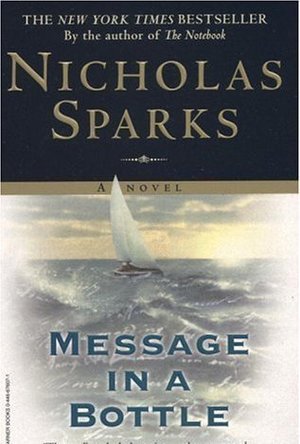
Message in a Bottle
Book
Shimmering with suspense and emotional intensity - takes readers on a hunt for the truth about a man...
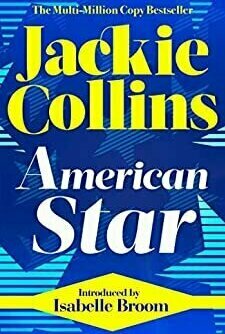
American Star. Jackie Collins
Book
Featuring a brand new introduction from bestselling author, Isabelle Broom, talking about what...
Necole (36 KP) rated The Patient in Books
Nov 24, 2021
Asylum Fright
November 20, 2021
I just got done reading The Patient by Jasper Dewitt and was not expecting to get sucked into a one morning read-a-thon. I think I read it in maybe 2 ½ hours. With that being said, I gave this book a 3-star review, although it should be a 3 ½-star review. I will start with the good and end with the bad.
A young, overconfident psychiatrist gets a new job at a mental asylum and chronicles his attempts to treat a profoundly disturbed patient who has been in the hospital since early childhood through a series of online posts. Each chapter is a new day and a new post that Parker has shared with the readers. This manuscript writing style was a unique way to give us Parker’s perspective and account of what occurred with patient “Joe”. I also enjoyed the transcripts and the audio tapes added into the chapters. These few thing added more layers to the story, sucked you in deeper, and gave an unexpecting twist to the book. It was like you were really reading a true account from whom it occurred to.
After reading all the hype and the synopsis of the book, I was hooked and reeled in. A psychiatrist, a mental patient, an asylum set in my home state of Connecticut, strange occurrences to those who have treated patient “Joe”, misdiagnosis’, undiagnosis’, a 30 plus year mystery … The Patient seemed to have it all!!! Even dark, creepy, supernatural horror!!! A perfectly blended cocktail of psychological thriller and supernatural horror.
Unfortunately, it fell flat for me. I kept anticipating more twists, turns, gore and scare. I wanted this book to haunt me well after I finished. The ending felt rushed and not well thought out, I felt like I was cheated out of being scared out of my mind. There was enough horror, suspense, thrills and mystery to keep me reading but after completing The Patient, I just felt let down. I feel like even as the story unfolds, Jasper could have gotten more in depth with the creepy and horror factor but instead it was almost basic. I tried to let my imagination scare with the images the author tries to put in your mind but again I was disappointed.
If you want a quick read that will scare you a little but will keep the suspense up, then pick this up because one person’s opinion is not another’s and who knows, you might scare more easily than me.
I just got done reading The Patient by Jasper Dewitt and was not expecting to get sucked into a one morning read-a-thon. I think I read it in maybe 2 ½ hours. With that being said, I gave this book a 3-star review, although it should be a 3 ½-star review. I will start with the good and end with the bad.
A young, overconfident psychiatrist gets a new job at a mental asylum and chronicles his attempts to treat a profoundly disturbed patient who has been in the hospital since early childhood through a series of online posts. Each chapter is a new day and a new post that Parker has shared with the readers. This manuscript writing style was a unique way to give us Parker’s perspective and account of what occurred with patient “Joe”. I also enjoyed the transcripts and the audio tapes added into the chapters. These few thing added more layers to the story, sucked you in deeper, and gave an unexpecting twist to the book. It was like you were really reading a true account from whom it occurred to.
After reading all the hype and the synopsis of the book, I was hooked and reeled in. A psychiatrist, a mental patient, an asylum set in my home state of Connecticut, strange occurrences to those who have treated patient “Joe”, misdiagnosis’, undiagnosis’, a 30 plus year mystery … The Patient seemed to have it all!!! Even dark, creepy, supernatural horror!!! A perfectly blended cocktail of psychological thriller and supernatural horror.
Unfortunately, it fell flat for me. I kept anticipating more twists, turns, gore and scare. I wanted this book to haunt me well after I finished. The ending felt rushed and not well thought out, I felt like I was cheated out of being scared out of my mind. There was enough horror, suspense, thrills and mystery to keep me reading but after completing The Patient, I just felt let down. I feel like even as the story unfolds, Jasper could have gotten more in depth with the creepy and horror factor but instead it was almost basic. I tried to let my imagination scare with the images the author tries to put in your mind but again I was disappointed.
If you want a quick read that will scare you a little but will keep the suspense up, then pick this up because one person’s opinion is not another’s and who knows, you might scare more easily than me.
Louise (64 KP) rated Camp Midnight in Books
Jul 2, 2018
I received an advanced readers copy of this book from the publisher and Netgalley in exchange for an honest review.
Skye is on her way to her fathers house for the summer, since the seperation of her parents she spends the holidays with him while her doctor mother travels to Rwanda. Skye really hates staying with her father and not because she doesn’t love him, it’s the evil step-mother (Gayle) or in Skye’s terms step-monster! Skye’s father, step -monster and even mother have a suprise in-store, instead of staying with her dad she is to go to Summer Camp! To Skye this is worse than staying with the Step-monster, but to make her father happy she agrees to go. Only when they arrive at the station they are very late and buses are starting to leave, in haste her father sees the bus ‘Camp Midnight’ and informs Skye thats her ride. Upon stepping on the bus Skye soon realises that some of these other kids are not normal and she is clearly on the wrong bus. She befriends Mia and they plan to stick together throughout their time at camp. Camp Midnight is full of witches, werewolves and other monsters of the night, Where the regime is to sleep through the day and wake at midnight. There are all sorts of activities which Skye is set that she is not participating, the group want her to reveal her inner monster but can she?
I enjoyed this book it was an easy quick read and humourous in places even when there were no words the pictures alone were comical (no pun intended) The writing text that was used was sometimes hard to read i.e. Mia looked a lot like Ma because it was so close together. I wasn’t a massive fan of the artwork it had a retro feel to it, the colours were mostly blue, red, orange and green but did complement the story well.
Skye obviously never took her parents separation well and with becoming a teenager, along comes the bitterness and sarcasm which is ineveitable in this stage of life. She is hostile towards her step mother and generally not a nice kid to be around. But true to its form a story like this would’t be worth telling if it didnt have, self discovery, friends, a love interest and also that can people can be different to what they appear to be.
Mia is the timid friend that Skye meets on the bus. Discovering that Mia has been here before and that she has enjoyed it they vow to stick with each other to ride the time out. Mia is very shy, appears to being picked on at the camp for being different and likes to be by herself but will not reveal her true-self to Skye as she believes that she will leave and once again become friendless.
The parents were just vulgar and neglectful, the step-mother was a bitch (sorry had to be said) and the father was easily persuaded by her and backed down and obeyed her demands like a dog…….THIS IS YOUR FRIGGIN KID FOR GOD SAKE!!!. Though I have to say, why is the step mum always evil? I know some great step mums! Annoying trope alert.
This book is not scary whatsoever, yes it has witches, werewolves and other mosters in there but the monster is used as a metaphor for teenagers, with them being confused of who they really are, moodswings etc etc….you get what I am getting at.
I would say this is for middle-grade to teens – it’s not scary but send out an important message.
Overall I rated this 3 stars
Skye is on her way to her fathers house for the summer, since the seperation of her parents she spends the holidays with him while her doctor mother travels to Rwanda. Skye really hates staying with her father and not because she doesn’t love him, it’s the evil step-mother (Gayle) or in Skye’s terms step-monster! Skye’s father, step -monster and even mother have a suprise in-store, instead of staying with her dad she is to go to Summer Camp! To Skye this is worse than staying with the Step-monster, but to make her father happy she agrees to go. Only when they arrive at the station they are very late and buses are starting to leave, in haste her father sees the bus ‘Camp Midnight’ and informs Skye thats her ride. Upon stepping on the bus Skye soon realises that some of these other kids are not normal and she is clearly on the wrong bus. She befriends Mia and they plan to stick together throughout their time at camp. Camp Midnight is full of witches, werewolves and other monsters of the night, Where the regime is to sleep through the day and wake at midnight. There are all sorts of activities which Skye is set that she is not participating, the group want her to reveal her inner monster but can she?
I enjoyed this book it was an easy quick read and humourous in places even when there were no words the pictures alone were comical (no pun intended) The writing text that was used was sometimes hard to read i.e. Mia looked a lot like Ma because it was so close together. I wasn’t a massive fan of the artwork it had a retro feel to it, the colours were mostly blue, red, orange and green but did complement the story well.
Skye obviously never took her parents separation well and with becoming a teenager, along comes the bitterness and sarcasm which is ineveitable in this stage of life. She is hostile towards her step mother and generally not a nice kid to be around. But true to its form a story like this would’t be worth telling if it didnt have, self discovery, friends, a love interest and also that can people can be different to what they appear to be.
Mia is the timid friend that Skye meets on the bus. Discovering that Mia has been here before and that she has enjoyed it they vow to stick with each other to ride the time out. Mia is very shy, appears to being picked on at the camp for being different and likes to be by herself but will not reveal her true-self to Skye as she believes that she will leave and once again become friendless.
The parents were just vulgar and neglectful, the step-mother was a bitch (sorry had to be said) and the father was easily persuaded by her and backed down and obeyed her demands like a dog…….THIS IS YOUR FRIGGIN KID FOR GOD SAKE!!!. Though I have to say, why is the step mum always evil? I know some great step mums! Annoying trope alert.
This book is not scary whatsoever, yes it has witches, werewolves and other mosters in there but the monster is used as a metaphor for teenagers, with them being confused of who they really are, moodswings etc etc….you get what I am getting at.
I would say this is for middle-grade to teens – it’s not scary but send out an important message.
Overall I rated this 3 stars

